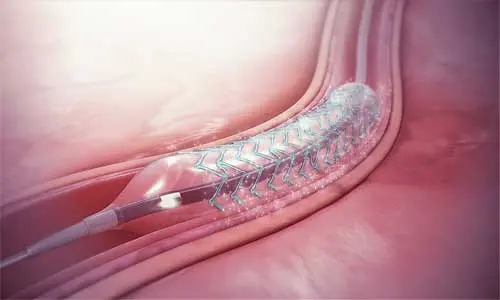- Home
- Medical news & Guidelines
- Anesthesiology
- Cardiology and CTVS
- Critical Care
- Dentistry
- Dermatology
- Diabetes and Endocrinology
- ENT
- Gastroenterology
- Medicine
- Nephrology
- Neurology
- Obstretics-Gynaecology
- Oncology
- Ophthalmology
- Orthopaedics
- Pediatrics-Neonatology
- Psychiatry
- Pulmonology
- Radiology
- Surgery
- Urology
- Laboratory Medicine
- Diet
- Nursing
- Paramedical
- Physiotherapy
- Health news
- Fact Check
- Bone Health Fact Check
- Brain Health Fact Check
- Cancer Related Fact Check
- Child Care Fact Check
- Dental and oral health fact check
- Diabetes and metabolic health fact check
- Diet and Nutrition Fact Check
- Eye and ENT Care Fact Check
- Fitness fact check
- Gut health fact check
- Heart health fact check
- Kidney health fact check
- Medical education fact check
- Men's health fact check
- Respiratory fact check
- Skin and hair care fact check
- Vaccine and Immunization fact check
- Women's health fact check
- AYUSH
- State News
- Andaman and Nicobar Islands
- Andhra Pradesh
- Arunachal Pradesh
- Assam
- Bihar
- Chandigarh
- Chattisgarh
- Dadra and Nagar Haveli
- Daman and Diu
- Delhi
- Goa
- Gujarat
- Haryana
- Himachal Pradesh
- Jammu & Kashmir
- Jharkhand
- Karnataka
- Kerala
- Ladakh
- Lakshadweep
- Madhya Pradesh
- Maharashtra
- Manipur
- Meghalaya
- Mizoram
- Nagaland
- Odisha
- Puducherry
- Punjab
- Rajasthan
- Sikkim
- Tamil Nadu
- Telangana
- Tripura
- Uttar Pradesh
- Uttrakhand
- West Bengal
- Medical Education
- Industry
Polymer-free stents no better than durable-polymer stents in long run

Germany: Polymer-free versus durable polymer drug-eluting stent (DES) yielded no measurable differences at 10 years in patients with coronary artery disease (CAD), show results from ISAR-TEST-5 trial. The study, published in the Journal of the American College of Cardiology, found the incidence of stent thrombosis to be low and comparable in both the groups. Also, long-term adverse outcomes were similar for both groups.
There is a limited outcome data after extended long-term follow-up of patients with coronary artery disease treated with drug-eluting stents (DES) in CAD patients treated with DES in randomized clinical trials. Stenting done with polymer-free or durable polymer DES may yield performance differences that may emerge over time. Sebastian Kufner, Deutsches Herzzentrum München, Technische Universität München, Munich, Germany, and colleagues assessed the 10-year outcomes of patients enrolled in the ISAR-TEST-5 (Test Efficacy of Sirolimus- and Probucol-Eluting Versus Zotarolimus-Eluting Stents) trial.
3,002 patients (median age 67.8 years) were randomized to treatment with either polymer-free sirolimus- and probucol-eluting stents (n = 2,002) or durable polymer zotarolimus-eluting stents (n = 1,000)
The primary endpoint was the composite of cardiac death, target vessel-related myocardial infarction, or target lesion revascularization (a device-oriented composite endpoint [DOCE]).
Key findings of the study include:
- At 10 years, 63.9% of patients were alive.
- The rates of DOCE and POCE were high in both groups with no difference in the incidence between polymer-free sirolimus- and probucol-eluting stents and durable polymer zotarolimus-eluting stents (DOCE: 43.8% vs. 43.0%, respectively; hazard ratio: 1.01; POCE: 66.2% vs. 67.7%, respectively; hazard ratio: 0.94).
- The rates of the individual components of the composite endpoints were comparable in both groups.
- The incidence of definite/probable stent thrombosis over 10 years was low and comparable in both groups (1.6% vs. 1.9%; hazard ratio: 0.85).
"At 10 years, there were no measurable differences in outcomes between patients treated with polymer-free versus durable polymer DES. The incidence of stent thrombosis was low and comparable in both groups. High overall adverse clinical event rates were observed during extended follow-up," concluded the authors.
The study, "10-Year Outcomes From a Randomized Trial of Polymer-Free Versus Durable Polymer Drug-Eluting Coronary Stents," was published in the Journal of the American College of Cardiology.
DOI: 10.1016/j.jacc.2020.05.026
Dr Kamal Kant Kohli-MBBS, DTCD- a chest specialist with more than 30 years of practice and a flair for writing clinical articles, Dr Kamal Kant Kohli joined Medical Dialogues as a Chief Editor of Medical News. Besides writing articles, as an editor, he proofreads and verifies all the medical content published on Medical Dialogues including those coming from journals, studies,medical conferences,guidelines etc. Email: drkohli@medicaldialogues.in. Contact no. 011-43720751


